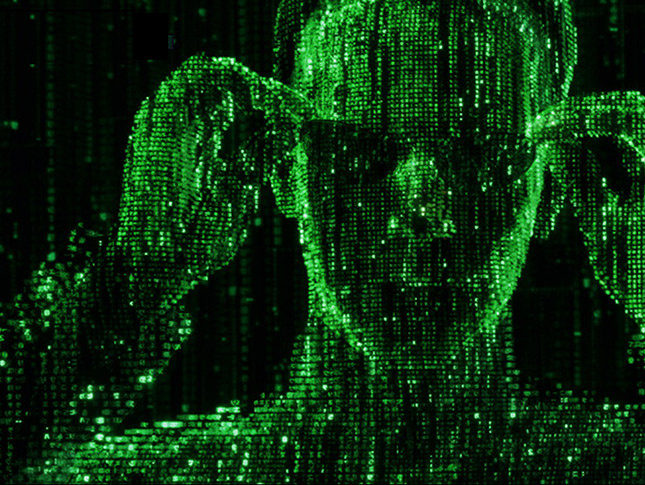
I’ve seen quite a few mentions of the possibility that we might live in a simulated universe. For those who have not encountered the theory before, the reasoning goes like this:
If we ever become advanced enough to be able to emulate a universe, we probably will. If that universe then spawns intelligent life and they advance to the level where they can do the same, they probably will too. And so on. Based on those premises, it becomes very improbable that we would be the first intelligent race that advances to the level where we can do this and therefore we are probably living in a simulated universe.
To be honest, I believe it is indeed very probable this could be true, although it’s hard to verify. But let’s just assume we do live in a simulated universe, as quite a few people believe we do, such as Elon Musk for example.
There is one aspect which baffles me to no end though. Almost everyone who believes we live in a simulation thinks that simulation is created with us at the centre. To me, that’s going back to the dark ages when we thought the sun revolved around the earth instead of the other way around. By now we should have managed to figure out that we are not the centre of the universe, even if it is a simulated one. Compared to the vastness of even the observable universe, we are completely insignificant. Our actions in that universe have even less effect than an ant pissing in the ocean. And yet our megalomaniac egotistic self image drives us to believe this entire thing is created just for us.
Let’s apply Occam’s razor to this hypothesis which states that, among competing hypotheses, the one with the fewest assumptions should be selected. I’ll propose one alternative to compete with the one described above:
The creators of this simulated universe wrote the code necessary for the basic physics laws, created an initial state and then watched what would happen.
The assumptions I make here are the following:
- There is a computer powerful enough to run our universe.
- The code can handle the fundamental laws of physics (which we haven’t all figured out yet).
- The code can apply these physics laws to all elements in the initial state simultaneously, or at least in such a way that any observer in the simulated universe experiences them that way.
- The system setup can handle the emerging complexity which arises from the interactions between the elements in the initial state.
- We are an emerging property of the initial setup of the system.
That should about cover it I think. Now let’s list the assumptions we need to make when the universe is created just for us.
- All of the above or at least enough of the above that we have the impression all of the above assumptions are met.
- In the case that only that part of the universe that we experience is actually implemented, the program needs to keep up with our discoveries.
- The entire 15 billion years of the existence of the universe must be pre coded to match our observations.
- The coders must be capable of implementing a complete eco system, including our complex brains, evolution mechanisms, adaptability of individuals on both a physical and mental level, every single being in that ecosystem, all the interactions between constantly evolving individuals within that ecosystem, …
- They might also have implemented other life in the universe that we haven’t discovered yet. We might discover some on the 7 planets we just found. That life must also fit into the rules of the rest of the system.
- They must be capable of copying their consciousness or that of their ancestors, an even more daunting task, into a simulation.
Now, I haven’t created a universe myself but I do have a history in coding and if I were to create a simulation, I’d go with the option of creating a simulation where I just code the laws of physics, then define an initial state and let it rip. Way easier to implement and way more robust. The amount of possible bugs you introduce in the ‘simulated human race’ option is so big it’s not funny anymore. And no, I’m not talking about the failures of society but more about things like people all of a sudden disappearing or pieces going missing. All kinds of crazy stuff could happen.
Of course, this is all from a human perspective and maybe our programmers are advanced enough to tackle those problems but still, why go through all that trouble when starting with something more simple can produce way more exciting and unforeseen results?
Anyway, going with Occam’s razor, the simpler option would be most likely.
From that perspective, the programmers might not even be aware that we exist. Now there’s a humbling thought eh? What if we only really matter within the confines of our own awareness? And that we only matter to ourselves?
To me it’s a liberating thought. It also means that, as humanity, we need to take care of our own shit because frankly, we are too insignificant for anyone else to care.
Also published on Medium.



I think it highly unlikely that we live in a simulated universe. One thing that always seems to be ignored is the ratio of elementary particles in a computer that are needed to emulate one simulated elementary particle in the simulation. My estimate is that this ratio would be enourmous. That would mean that a computer to simulate our universe would have to be orders of a magnitude greater than our universe.
This would also mean that each following simulation could only simulate a universe that is orders of a magnitude smaller than the previous one. Soon enough there wouldn’t be enough simulated material to make the next simulation.